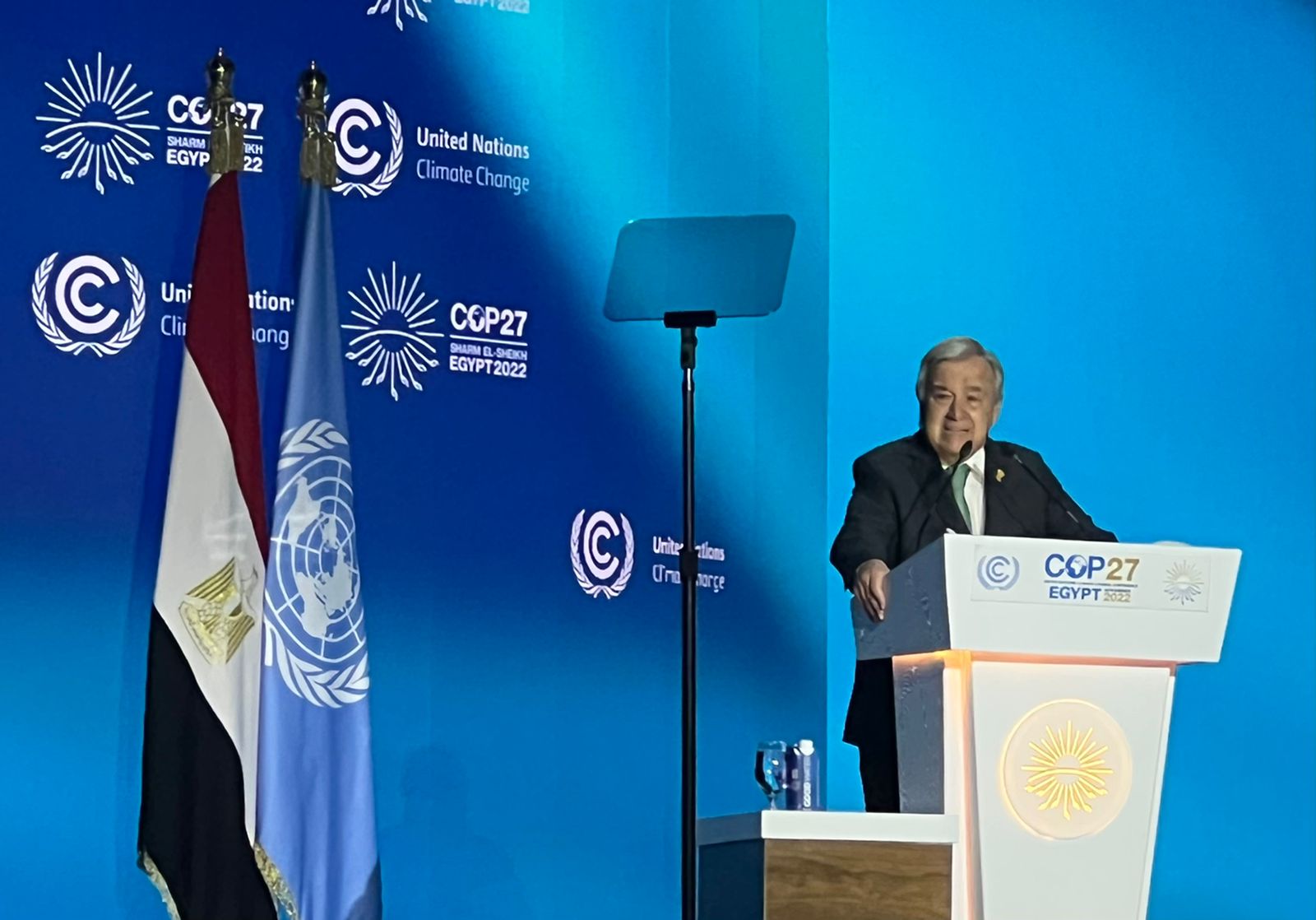The 27th session of the Conference of the Parties to the United Nations Framework Convention on Climate Change (COP27) has started in Sharm El Sheikh, Egypt.
The sixth United Nations climate change summit to take place since the Paris Agreement emerged at the end of COP21 on 12 December 2015, it has to tackle with recent explicit evidence of climate change, calls for reparations, the energy crisis caused by the war in the Ukraine and nations recovering from Covid-19.
The Secretary-General, António Guterres, opened the event saying, that the planet’s population will cross a new threshold of eight billion people, whilst greenhouse gas emissions keep growing and global temperatures keep rising.
He summed it up succinctly by saying: “We are on a highway to climate hell with our foot still on the accelerator”.
Guterres called for a historic pact between developed and emerging economies – a Climate Solidarity Pact in which all countries make an extra effort to reduce emissions this decade in line with the 1.5 degree goal and wealthier countries and International Financial Institutions provide financial and technical assistance to help emerging economies speed their own renewable energy transition. The Pact would also end dependence on fossil fuels and the building of new coal plants – phasing out coal in OECD countries by 2030 and everywhere else by 2040.
He said: “It is either a Climate Solidarity Pact – or a Collective Suicide Pact”.
The Prime Minister Rishi Sunak is expected top call for a "global mission for clean growth" when he addresses the summit later and will unveil more than £200m funding to protect forests and for green technologies in developing nations.
Sadly, even before the summit began, politics were to the fore, with Sunak’s decision to attend already being used as ammunition from other parties, rather detracting from the real message. It is moment like this, when narrow politics is trampled over good intentions, that you yearn for some grown-ups.
COP27 is also seeing the growth of a poorer countries pushing for financial compensation from rich countries for their historic part in emissions. Sunak’s predecessor Boris Johnson was on hand to say that such direct reparations were not financially tenable, and that a better solution would be for richer countries to invest in and develop carbon capture technology rather than ‘look backwards’.
Latest News
-
Private health provider awards £10,000 to arthritis research team
-
Building Society hands out £1m to tackle inequality
-
Premier League and Comic Relief partnership aims to improve children’s mental health
-
Russell Hobbs launches food poverty campaign in schools
-
Tottenham Hotspur and charities launch film to tackle mental health stigma
-
Cardfactory funds homelessness charity’s team of psychologists
© 2019 Perspective Publishing Privacy & Cookies







Recent Stories